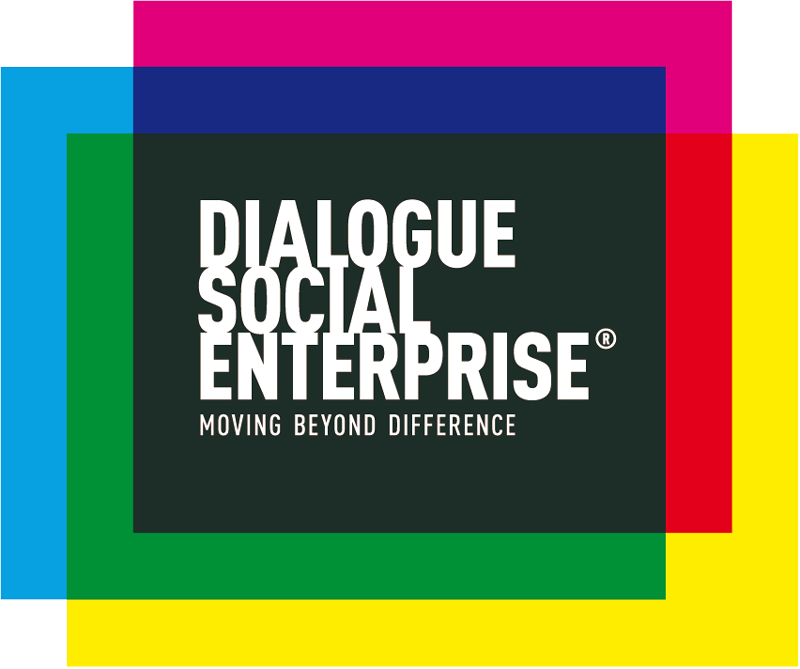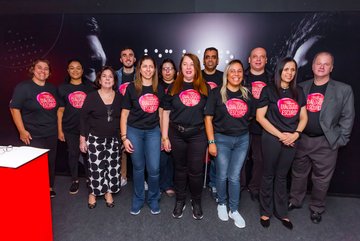The miracle-makers were our Brazilian partners Andrea and Luiz Calina.
“During these two years we kept constant relation and communications with the guides with visual disability, the suppliers and most important with the sponsors. Therefore, all of them were ready to put hands on when the time have come.”, described Andrea Calina their strategy.
Upon this post-covid opening of Dialogue in the Dark, there are several factors to analyze, such as the DiD mission, the employment of persons with disabilities and the visitors. And we wondered how much the soul of our thirty-something years dark exhibit might have changed or not.
Andrea thinks that empathy is now a core topic in the DiD visit and became a feeling being explored by those involved. She says: “There was a loss of connection among families and friends during the pandemic, and Dialogue in the Dark provides an opportunity to revive this connection. The exhibition serves not only its previous objectives but also new ones, such as connection, empathy, respect, human capacity to overcome barriers, effective communication… so relevant after the covid-19 experience.”
Having a new Dark venue opened to the public in Sao Paulo is great, but what makes us equally happy is the employment created for persons with visual disability! One of our biggest worries during the pandemic was how to sustain the jobs of our colleagues with disability.
“We have a team of eight guides with visual disability. Five had already participated in previous exhibitions and three freelancers who had only participated in workshops and who are therefore new to the exhibition.”, explains Andrea. “All of them are very enthusiastic to be working again and they are thrilled by the project proposal and its educational objective. So far, they are very happy with the exchange they are having with the groups of visitors.”
Another important topic to consider upon a new opening are the visitors. Let's not be naïve, while there is a sense of greater optimism about the pandemic, it is not over. One of the great unknowns of our network is what the reaction of our post-covid visitors will be.
Within the first days of the opening the Calinas made the experience that the public left the exhibition happy and impressed with the experience and expressing empathy to the guides. Many of the visitors showed willingness to increase the exhibition’s visibility through their social media and some were also open to do something more for the cause.
But Andrea also says: “However, we had to consider the pandemic in the design of the exhibition. We did not include the classical coffeeshop in the dark where you could purchase and eat in the dark, instead, we featured a Brazilian music pub where you can use your other senses besides tasting. The exhibition in general is enriched with many props to encourage the interaction of visitors who spent a lot of time isolated due to covid.”
“The pandemic also consolidated the use of social media. For that reason, we market a lot more through social media than in the regular media – especially in regard to the general public.”
Having the first DiD opening after 2.5 years of pandemic is a triumph for those who make and visit Dialogue in the Dark in the world. We are very happy for that and congratulate you and acknowledge your effort and commitment.
Asked for some advice for the network, Andrea says: “We strongly recommend the Dialogue partners and those interested on DiD to pursue the mission, because now we have a double message to transmit: on one hand, the original one about social inclusion of the disadvantaged and on the other hand, the one about reconnecting society and which is crucial to recover from the pandemic.”

